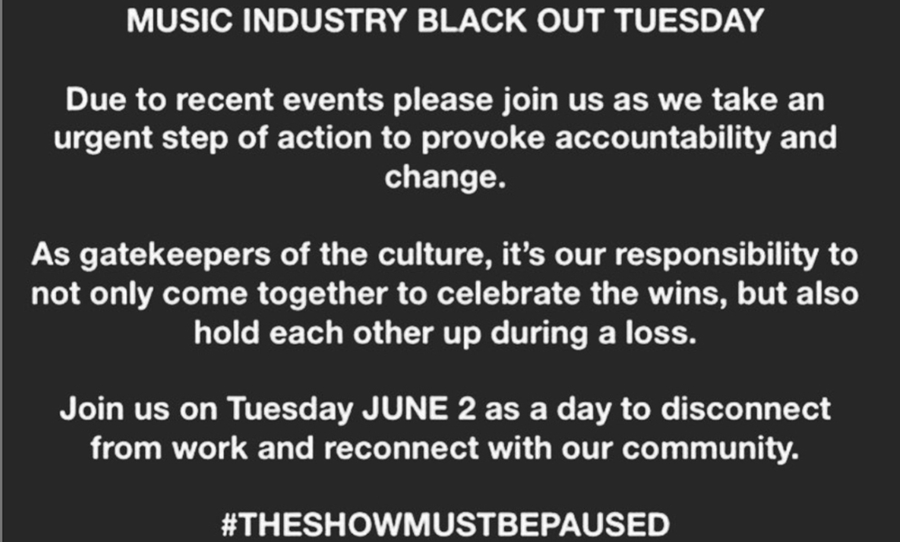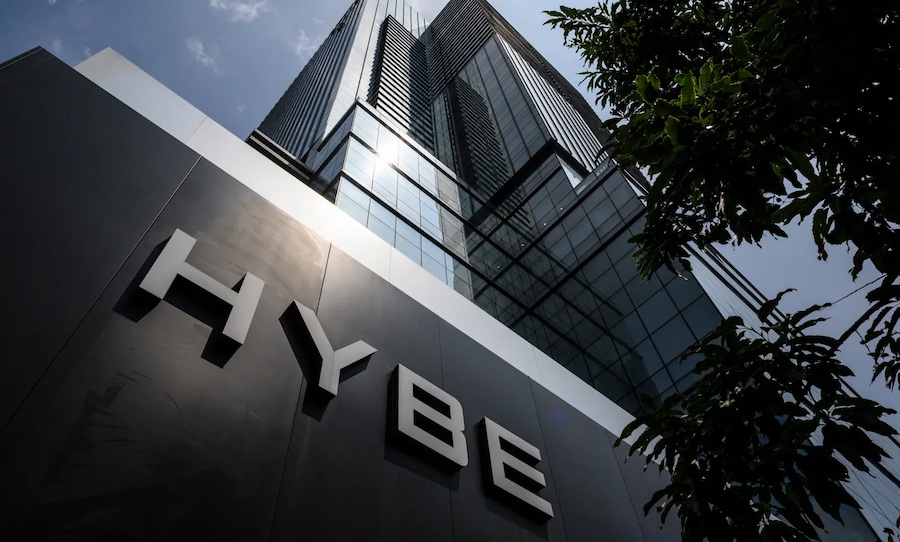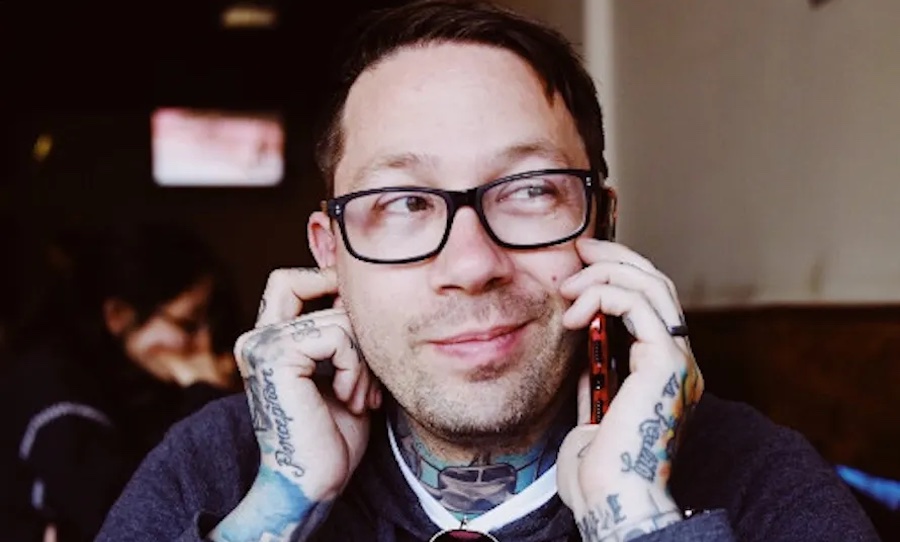The music industry has decided to take a united stand against racial injustice by having a “blackout” today (June 2nd), following on from the murders of George Floyd, Breonna Taylor, and Ahmaud Arbery.
Major labels and music corporations from around the world have reacted to the movement by taking their own initiatives to do their bit for the crisis.

Blackout Tuesday is a day for music industry professionals “to disconnect from work and reconnect with our community”.
Sparked by a message circulating on social media at the end of last week, the #TheShowMustBePaused initiative was started by two women of colour working in the music industry, who observe the “long-standing racism and inequality that exists from the boardroom to the boulevard”. Jamila Thomas is the Senior Director of Marketing at Atlantic while Brianna Agyemang is a former Atlantic Executive who is now Senior Artist Campaign Manager at Platoon.
This Tuesday was intentionally picked to interrupt the working week as “Monday suggests a public holiday”, and it’s too late by Friday. Action needs to be taken now, they said.
The statement called out the music industry, “an industry that has profited predominately from Black art”. The overall mission of the initiative is for these music companies to be transparent in empowering the “Black communities that have made them disproportionately wealthy”.
The movement has since blown up, reaching many multi-scale corporations within the music industry who have each responded in their own way. Many record companies have said they will not be releasing any new music this week while others have encouraged staff members to take the day off to reflect and educate themselves on the topographies of race.
Artists and labels have taken to Instagram, posting a photo with a black background, to voice their solidarity with those who are out on the streets protesting for racial equality and justice.
Interscope Geffen A&M, Capitol, and WMG were direct in their messaging, pledging contributions to charities and financial assistance to lawyers and bail companies. Universal Music Group have launched an inclusion task force.
Spotify have responded by adding a black logo to many playlists while also incorporating a silent track into select playlists which goes for exactly 8 minutes 46 seconds; a statement acknowledging the murder of George Floyd and sustaining for the duration of time in which he was suffocated by a policeman in Minneapolis.
Even small indie record labels such as Mexican Summer, have provided their stance and said they will be postponing all releases set for this week until a later date. Jack White’s Third Man Records have followed suit, clarifying that this silence is not to be mistaken for complacency.
Others have been sceptical about the effectiveness #TheShowMustBePaused initiative. Bon Iver’s Justin Vernon tweeted this:
I am not attacking anyone personally , I love you all, but this music industry shutdown thing feels tone deaf to me. Let’s all participate in our actual world RN.
don’t call ourselves the gatekeepers of culture either.
Please— blobtower (@blobtower) June 1, 2020
But while Blackout Tuesday has been relevant for music industry workers to hold some responsibility and take the time to reflect, the reactions of the day shouldn’t just stand in isolation. Unique cultures and musical movements have been created by Black communities, driving some of the most important forces behind the remarkable world of music.
“This is not just a 24-hour initiative. We are and will be in this fight for the long haul.”




